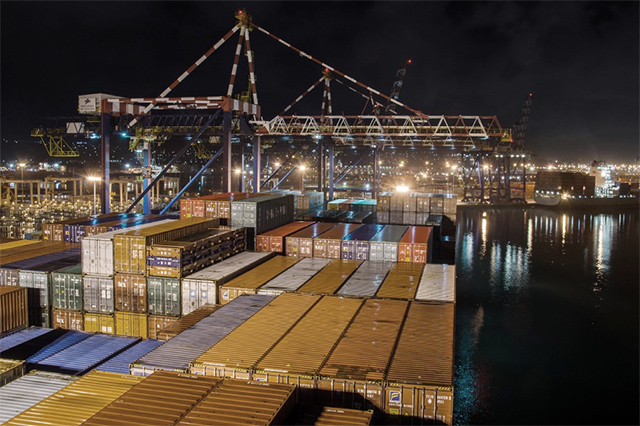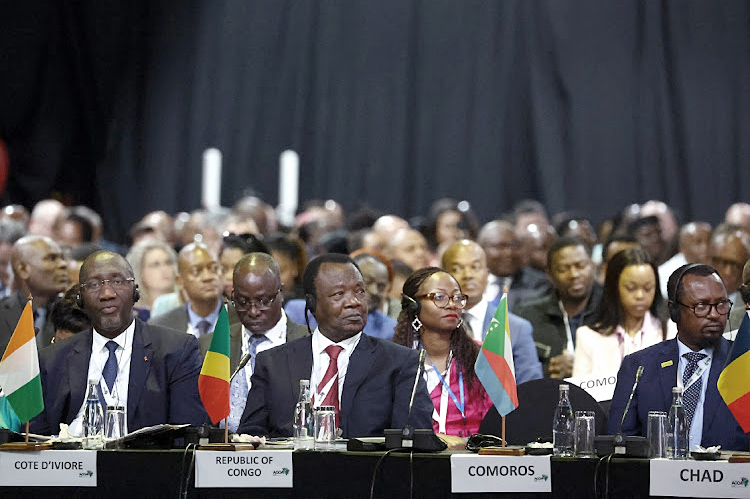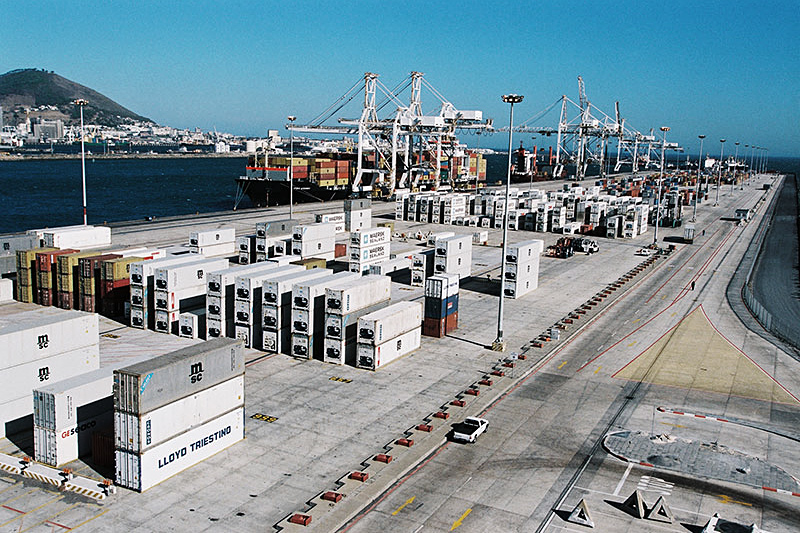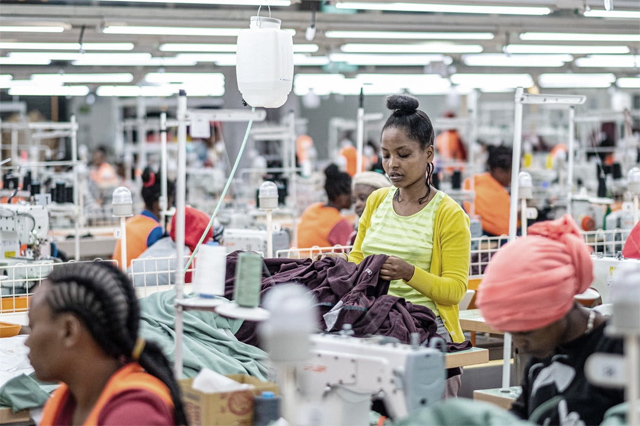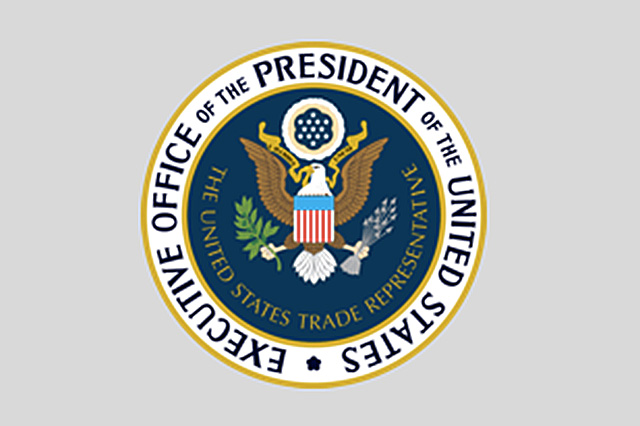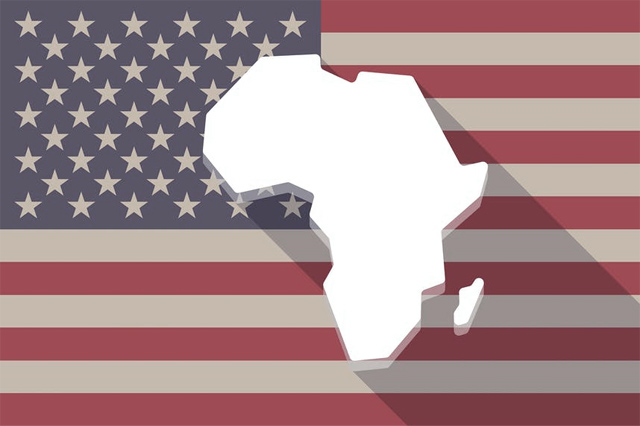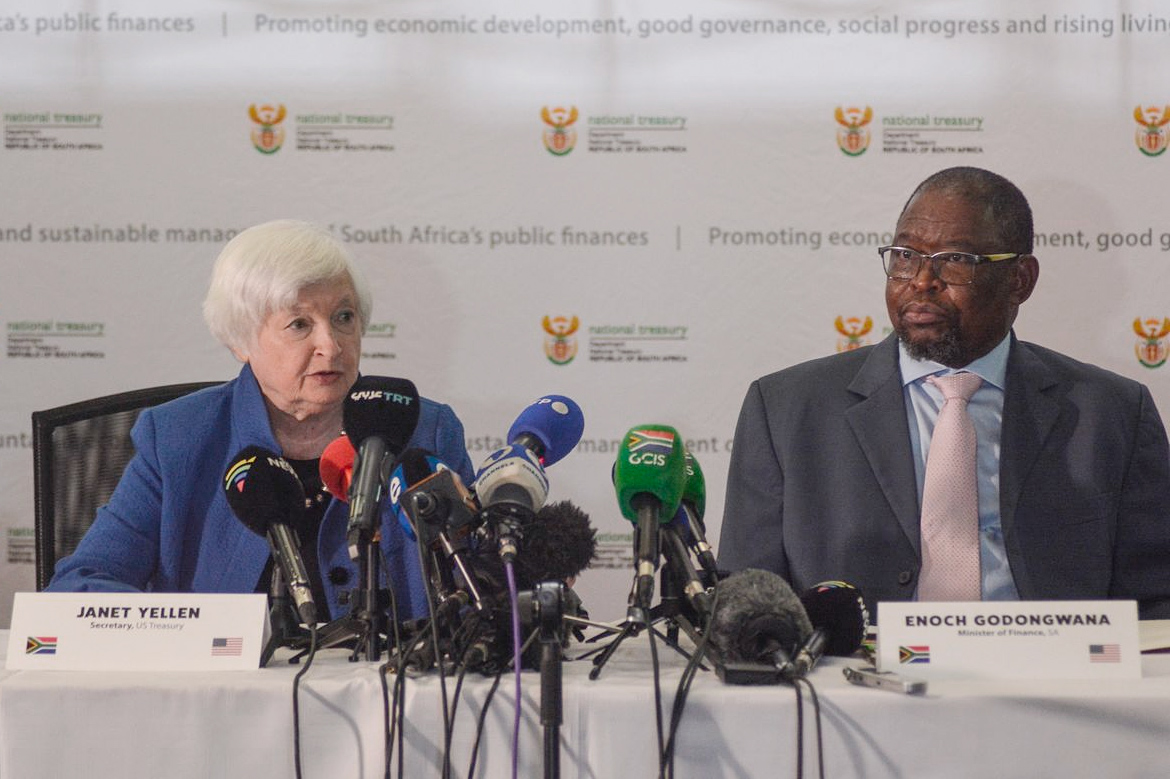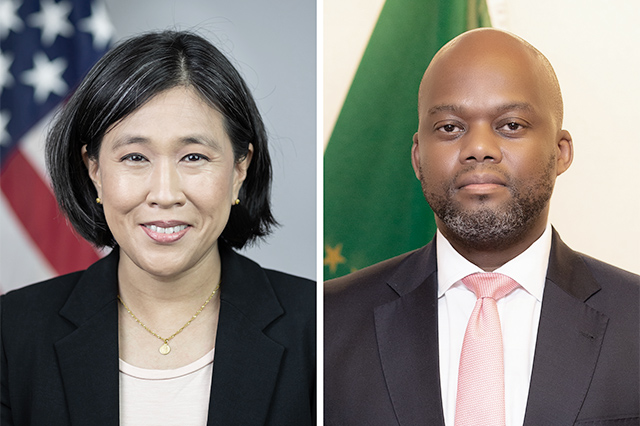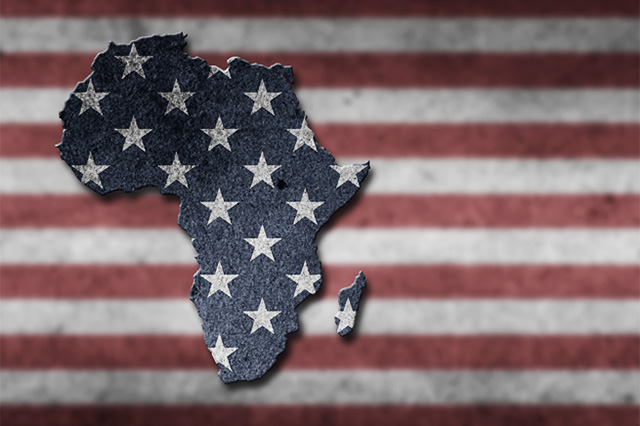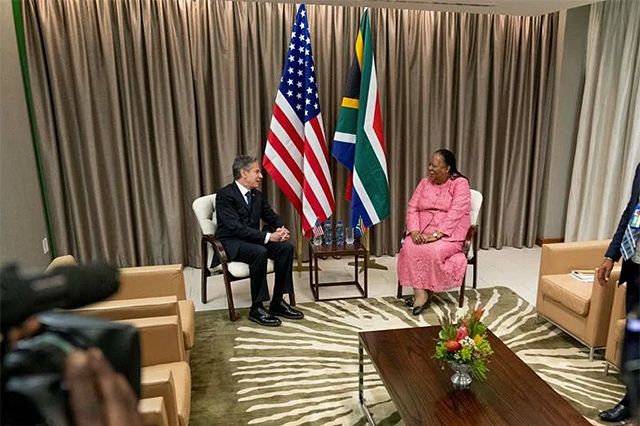Congress should pave the way for a US–Africa Free Trade Agreement - Report
Since 2000, the African Growth and Opportunity Act (AGOA) has contributed to more than doubling trade with AGOA-eligible countries. The countries of sub-Saharan Africa are increasingly viable economic partners that deserve focused attention and deeper engagement. If the U.S. fails to advance AGOA beyond a trade-preference arrangement, it risks losing ground to Europe and other nations eager to enter into more robust economic partnerships. Congress and the Obama Administration should work together to renew and upgrade AGOA to advance economic freedom in Africa, encourage economic integration within the region, and set the stage for a free trade agreement between the US and Africa.
Vibrant economic growth and lasting development in sub-Saharan Africa depends greatly on increasing the competitiveness of African entrepreneurs through expanded economic freedom. Since the African Growth and Opportunity Act (AGOA) was signed into law in May 2000, AGOA has contributed to that goal by providing expanded duty-free access for most imports from the region and encouraging good governance and economic freedom. Over the past 13 years, the preferential access granted under AGOA has deepened the U.S. trading relationship with sub-Saharan Africa. Exports from AGOA-eligible countries to the U.S. in 2012 were more than twice the level of exports in 2000, and U.S. exports to these countries more than tripled.
However, AGOA will not realize the full potential for trade-led economic growth, increased investment, and broad-based economic development as long as it remains limited to a trade-preference arrangement. To gain full advantage of the opportunity for mutually beneficial trade and investment, the Obama Administration and Congress should work together to renew AGOA along with provisions to encourage regional integration, expand the number of products granted duty-free access, eliminate quota restrictions, and require gradual reciprocal duty-free treatment for American exports with the objective of negotiating a free trade agreement (FTA) between the U.S. and Africa by 2025.
The upcoming renewal of AGOA presents a timely opportunity to upgrade AGOA from a limited trade arrangement into a pathway toward a free trade and investment partnership that will solidify America’s engagement with Africa and benefit individual Americans and Africans.
AGOA: The Cornerstone of America’s Economic Interaction with Africa
Charting a new course for America’s practical engagement with sub-Saharan Africa, Congress passed the African Growth and Opportunity Act as part of the Trade and Development Act of 2000, and President Bill Clinton signed it into law on May 18, 2000. In August 2002, President George W. Bush signed amendments to AGOA that expanded preferential access for eligible sub-Saharan African counties. Two years later, President Bush signed the AGOA Acceleration Act of 2004, which extended preferential access for imports from eligible sub-Saharan African countries through September 30, 2015, and broadened and clarified textile-related provisions in the act.
AGOA has built on existing U.S. trade programs by expanding the duty-free access previously available to developing countries under the Generalized System of Preferences (GSP) program. While the United States generally maintains relatively low average trade barriers, its highest trade barriers tend to apply to goods that developing countries export. Under the GSP, the U.S. grants preferential duty-free access to 127 developing countries around the world for 4,975 products as defined by the Harmonized Tariff Schedule.[1] In 2012, the program reduced tariffs by $742 million.[2]
AGOA provides duty-free treatment for 1,827 additional goods not covered under the GSP.[3] Notably, AGOA “provides duty-free access to all clothing (as well as certain textile) exports from countries that qualify under the Act’s ‘wearing apparel provisions’, subject to the Rules of Origin (RoO) being met.”[4] Between the GSP and AGOA, eligible sub-Saharan African countries can export approximately 6,800 goods to the U.S. duty-free.
AGOA’s primary purpose is to increase trade and enhance the development of eligible countries through preferential access to the U.S. market. The premise is that preferential access lowers export costs to the U.S. market, which should make African exports more competitive and spur trade-related investment in AGOA-eligible countries, thereby creating jobs and contributing to economic growth and development.
The data indicate that AGOA has led to an increase in two-way trade since its inception in 2000. As shown in Chart 1, U.S. exports to AGOA-eligible countries increased from $6.7 billion in 1999 (before AGOA) to $21.8 billion, as measured in constant 2012 dollars. Despite the considerable variance since 2008, U.S. imports from these countries increased from $17.8 billion in 1999 to $46.8 billion in 2012.[5]
While AGOA imports were 35 percent lower in 2012 than in 2011, this decline was principally driven by a 38 percent decrease in oil and gas imports.[6] With these fuel products excluded, AGOA imports—almost exclusively dominated by raw materials—were $4.8 billion in 2012, decreasing by 4 percent from the previous year. However, imports of agricultural products increased by 28 percent.
According to Representative Chris Smith (R–NJ), Chairman of the Africa, Global Health, Global Human Rights, and International Organizations Subcommittee of the House Foreign Affairs Committee, a report by the African diplomatic corps “estimated that AGOA has generated about 350,000 direct jobs and 1,000,000 indirect jobs in Sub-Saharan Africa, and about 100,000 jobs in the United States.”[7] The top five AGOA-beneficiary countries in 2012 were Nigeria, Angola, South Africa, Chad, and Gabon. Other leading AGOA beneficiaries included the Republic of Congo, Lesotho, Kenya, Mauritius, and Cameroon.[8]
AGOA’s trade and investment incentives are also intended to press African governments to improve their political and economic governance because sound policy is crucial to sustained economic growth and broad-based development. As a result, sub-Saharan African countries are not automatically eligible for AGOA benefits. Instead, the U.S. President must designate eligible countries based on their progress in areas such as establishing market-based economies, representative government, strengthening the rule of law, combating corruption, eliminating barriers to U.S. trade and investment, safeguarding intellectual property, reducing poverty, expanding health care and educational opportunities, and protecting human rights.[9] However, a country need not make progress in all areas to qualify for AGOA benefits. Currently, 39 of the 49 countries in sub-Saharan Africa are eligible for AGOA benefits.[10]
Strong Case for Moving AGOA Beyond Preferential Trade
The expanded two-way trade under AGOA is significant and welcome. Without the GSP and AGOA, goods from eligible countries would face significant tariff-related costs that would make a number of African exports less competitive, hindering trade and trade-related economic activity between the U.S. and sub-Saharan African nations. Those interested in boosting economic growth and development in sub-Saharan Africa should support the renewal of both the GSP and AGOA.
However, substantial benefits from trade remain unrealized under AGOA, which is a largely one-sided trade preference arrangement rather than an FTA. Moreover, AGOA retains tariffs and quotas on a few key products. According to a recent Brookings Institution economic study, if the U.S. were to grant duty-free and quota-free treatment to all imports from AGOA-eligible countries, exports from those countries to the U.S. would increase by more than $105 million while U.S. production of those goods would fall by only $9.6 million.[11]
Yet those gains would be small compared to actions that African governments could undertake themselves. Indeed, the study projected that implementing five regional economic communities in sub-Saharan Africa would increase intra-African trade by $8 billion and a continental free trade area would boost intra-African trade by $37.5 billion.
More importantly, the U.S. trading relationship with sub-Saharan Africa is based on a regional perspective that is increasingly less accurate. AGOA was established to provide a hand up to a region in need of economic assistance. Much of the region remains poor, but it has become considerably more dynamic and integrated into the global trading arena since 2000.
Africa’s place in the world is changing rapidly. Despite some setbacks caused by political turmoil in some countries, overall trade and investment policy has gradually improved and contributed to increased economic growth and living standards. According to the Index of Economic Freedom, an annual data-driven economic policy analysis by The Heritage Foundation and The Wall Street Journal, sub-Saharan African economies as a group have gradually moved toward greater economic freedom since 2000. Mauritius is now the world’s eighth freest economy, while Rwanda, Cape Verde, Angola, and Botswana have also made notable improvements over the years.
As documented by the Index, trade facilitation and other regulatory reforms have strongly contributed to advancing economic freedom in these countries, enhancing competitiveness and the general entrepreneurial environment. In fact, 24 of the 38 AGOA-eligible countries—excluding South Sudan, which is not graded by the Index—have moved toward greater economic freedom since 2000.
These policy reforms have coincided with high economic growth over the same period. On average, African countries have registered consistent growth rates of around 5 percent, which were only temporarily interrupted by the global economic downturn.[12]
In 2012, the economies of about one-fourth of African countries grew at 7 percent or higher, and the economies of Sierra Leone, Niger, CÔte d’Ivoire, Liberia, Ethiopia, Burkina Faso, and Rwanda are among the fastest growing in the world.[13] Net private capital flows to the region increased by 3.3 percent to a record $54.5 billion in 2012, and foreign direct investment into the region increased by 5.5 percent in 2012 to $37.7 billion.[14] Economic growth is expected to remain strong.[15]
Not by coincidence, overall poverty in the region is also declining. Economic research shows that the entrepreneurship encouraged by greater economic freedom leads to innovation, economic expansion, and overall improvement in living standards and human development.
With improved policy environments and a rich resource endowment, many economies in the region have become more attractive trading partners to the rest of the world. The European Union is currently pressuring African countries to enter into economic partnership agreements that would make preferential access to EU markets contingent on reciprocal preferential access to African markets. China’s trade with Africa exceeds $160 billion, overtaking the U.S. as Africa’s largest trading partner in 2009.[16] Emerging partners—including Brazil, India, and South Korea—account for around 40 percent of the continent’s merchandise trade, up from 23 percent a decade ago.
In short, African nations should no longer be regarded primarily through the lens of assistance, but increasingly as viable economic partners that deserve focused attention and deeper engagement.
Next Steps for the United States
AGOA is at a critical juncture. As the law stands, nearly all imports from eligible sub-Saharan countries enter the U.S. duty-free through 2015. However, the existing law ignores significant potential benefits. If the U.S. fails to advance AGOA beyond a trade-preference arrangement, it risks losing ground to Europe and other nations eager to enter into more robust economic partnerships. Instead of simply renewing AGOA, the U.S. should use the legislation to spur African economic integration and ultimately transform the trade-preference program into a FTA between the U.S. and Africa. Specifically, the U.S. should:
- Reauthorize the GSP. The GSP expired on July 31, 2013. Given the critical linkage between AGOA and the GSP and the substantial trade benefits arising from the arrangement, Congress should renew the GSP.
- Renew AGOA through 2025. AGOA is set to expire in 2015. Together with the GSP, AGOA provides duty-free treatment for approximately 6,800 products exported from eligible African nations. This special trade treatment has contributed to investment, business formation, job growth, and economic growth for Africans and Americans alike. Failure to renew AGOA on a long-term basis risks reversing these gains and undermining America’s credibility as a reliable economic partner in the region.
- Endorse regional economic integration. The African Union has already announced its intention to finalize agreements for regional economic communities by 2014, integrate them between 2015 and 2016, and establish a continental free trade area by 2017.[17] Economic analysis indicates that regional economic integration would provide significant economic benefits, and the U.S. should encourage the African nations through AGOA.
- Incentivize economic integration while encouraging AGOA-eligible countries to pursue greater economic freedom. AGOA has facilitated trade expansion for African economies. However, tariffs and quotas remain on a number of goods that could significantly benefit African economies and U.S. consumers at a relatively small cost to U.S. producers. AGOA should reward African progress toward economic integration and economic freedom by linking those steps to expansion of duty-free treatment and elimination of quotas on key products.
- Starting in 2017, make AGOA preferences contingent on reciprocal duty-free treatment of a gradually expanding list of U.S. exports with the goal of transforming AGOA into a formal FTA by 2025. While AGOA is useful, it is an incomplete approach to increasing U.S.–African trade that ignores the benefits that Africans could realize from lower tariffs on U.S. imports. The U.S. should expand AGOA into an FTA to maximize its economic benefits.
Time for an Economic Freedom Partnership with Africa
In the AGOA forum’s inaugural meeting 12 years ago, President George W. Bush underscored, “We have a unique opportunity to build ties of trade and trust that will improve the lives on both our continents. And we will seize this opportunity.”[18] Substantial bipartisan support continues for forging close relations with African countries and promoting economic growth, stability, and good governance. AGOA has helped to advance this goal, but trade-preference legislation falls short of the full potential for American economic partnership with the region.
Congressional support for freer trade is critical to America’s efforts to replace poverty with economic freedom and prosperity in the continent. The Obama Administration and Congress should work together not only to renew AGOA, but also to upgrade it into an instrument that advances economic freedom in Africa, effectively encourages economic integration within the region, and sets the stage for a free trade agreement between the U.S. and Africa.
*** For a full list of references, please consult the pdf version of this report.
-- Brett D. Schaefer is Jay Kingham Fellow in International Regulatory Affairs in the Margaret Thatcher Center for Freedom, a division of the Kathryn and Shelby Cullom Davis Institute for International Studies, at The Heritage Foundation; Anthony B. Kim is a Senior Policy Analyst in the Center for International Trade and Economics at The Heritage Foundation; and Charlotte Florance is Research Associate for Economic Freedom in Africa and the Middle East in the Douglas and Sarah Allison Center for Foreign Policy Studies, a division of the Davis Institute, at The Heritage Foundation.



